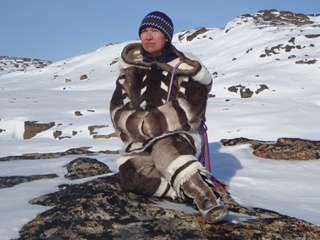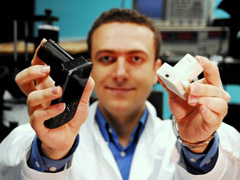Conversations with an Inuit language advocate, a deep-sea oceanographer, and a tissue engineer growing synthetic beef in the lab are part of the 2012 edition of The SciCom Interviews, published by current students in the Science Communication Program.
The SciCom Interviews, modeled after the regular Q&A features in Scientific American, arise from an assignment in the program's winter-quarter feature class. Students go to the annual AAAS meeting in February, where they attend scientific sessions and press conferences of their choice. Then, they arrange private conversations with a speaker and edit the conversations into stories of about 1,800 words.
This year, with the AAAS meeting in Vancouver, Canada, several of the ten published interviews revolve around Canadian research. They include:
• A look ahead at the ambitious future of particle physics with Lia Merminga, director of Canada's particle accelerator program.
• A conversation with the Smithsonian Institution's Igor Krupnik, whose team works with indigenous communities in the Arctic to reveal the direct cultural impacts of climate change.
• The thoughts of fisheries biologist Daniel Pauly of the University of British Columbia, who has criticized the lack of a global approach to fisheries research.
• A personal journey through Inuit language and culture with Leena Evic, who leads a modern effort to preserve the Inuktitut language in Nunavut.
Other interview subjects include: a biomedical researcher reviewing the impacts of "The Pill," 50 years after its introduction; a neuroscientist who gets his subjects to be physically active, by any means possible; and the team leader of the 2011 "Breakthrough of the Year" in Science, on an HIV treatment trial with profound implications.
Program director Robert Irion edited The SciCom Interviews, which made their debut in 2008. This year, Scientific American contributor Brendan Borrell, a freelance science writer in New York, shared his interview and editing strategies with the students in class.


